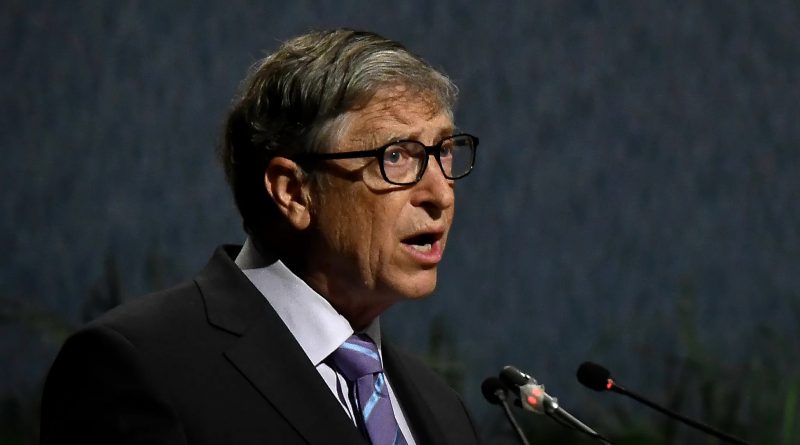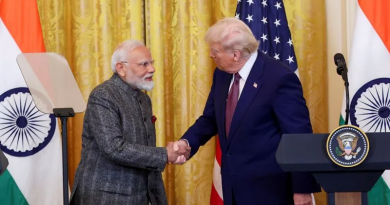Bill Gates Calls for a Human-Focused Climate Strategy Ahead of COP30
As COP30 approaches, Bill Gates urges world leaders to rethink the climate agenda — focusing on resilience, health, and equity rather than just temperature targets. His message: climate action must be about people, not just numbers.
At the Annual Bloomberg Global Philanthropies Forum in New York City, billionaire investor and philanthropist Bill Gates issued a powerful call to action for world leaders ahead of the COP30 climate summit in Brazil.
Gates urged nations to pivot from narrow temperature reduction goals to a broader, human-centered approach that prioritizes health, resilience, and economic stability in the face of escalating climate challenges.
The COP30 talks, scheduled to take place in the Amazonian city of Belem from November 10 to 21, will bring together representatives from nearly 200 nations.
Delegates are expected to present updated national climate commitments and review progress on renewable energy targets set during earlier summits.
But Gates’ message stands out for its clarity and optimism: while the world’s efforts to limit global warming remain essential, genuine progress must be measured in human terms — in lives saved, communities protected, and opportunities created.
For over a decade, the Paris Agreement has served as the cornerstone of global climate policy, committing nations to limit global temperature rise to below 2 degrees Celsius above pre-industrial levels.
Yet, despite years of pledges and progress, the planet is still far from achieving those goals. Gates argues that the world has become too fixated on temperature figures, which, while scientifically important, fail to capture the full spectrum of what climate change truly means for humanity.
Writing on his personal blog, Gates stated that while climate change poses a serious threat, it is not the end of civilization. He believes the better path forward lies in adaptation — building systems and societies that can withstand and recover from environmental disruptions.
In his view, strengthening public health, improving access to clean and affordable energy, and investing in agricultural resilience can create a more sustainable future for all.
Gates emphasized that these efforts should focus particularly on vulnerable nations that face the harshest consequences of climate change, including droughts, floods, and food insecurity.
“Helping people adapt to a changing climate is not a side project — it’s central to climate action,” he noted. The philanthropist explained that sustainable agriculture, healthcare, and clean energy access directly improve quality of life while also reducing long-term environmental risks.
Through his climate-focused venture network, Breakthrough Energy, Gates has invested billions in clean technology innovation. His investments support companies developing next-generation solutions in renewable energy, carbon capture, and sustainable farming.
He urged global investors to follow suit, backing projects that combine environmental impact with social benefit.
“Innovation and scale are the twin engines of climate progress,” he wrote, calling on policymakers and philanthropists to evaluate how climate funds are being spent — and whether they’re truly making a measurable difference.
To illustrate his point about resilience, Gates highlighted a significant fact: direct deaths from natural disasters have fallen by nearly 90% over the past century.
Today, around 40,000 to 50,000 people die annually from extreme weather events, compared to millions in the early 20th century.
This dramatic reduction, he said, is the result of improved early warning systems, better infrastructure, and more effective governance.
It shows that human ingenuity and preparedness can save lives even in a changing climate.
His perspective aligns with recent statements from the United Nations and the World Meteorological Organization, both of which have emphasized the need for universal disaster warning systems.
According to the WMO, more than 2 million people have died from weather, water, and climate-related hazards over the last five decades, with 90% of those deaths occurring in developing countries.
Gates’ call underscores that these nations require greater international support — not only in emissions reduction funding but in practical adaptation measures that protect their people.
He also urged the international community to think beyond short-term goals and embrace long-term resilience planning. “If we only focus on reducing emissions, we risk ignoring the human cost of inaction,” he cautioned.
“Climate justice means ensuring that every community has the tools to survive and prosper in a warmer world.”
As COP30 approaches, Gates’ message stands as both a warning and a roadmap. The billionaire’s emphasis on innovation, health, and equity reframes the climate conversation from abstract targets to tangible outcomes.
His approach suggests that success at COP30 will depend not only on commitments to cut carbon but on strategies that uplift the world’s most vulnerable populations.
In a world increasingly affected by heatwaves, floods, and food crises, Gates’ optimism offers hope — that through collective effort and smarter investments, humanity can adapt and flourish.
His vision is not one of despair but determination: a call to see climate action not as a burden, but as an opportunity to build a safer, fairer, and more resilient world for all.



